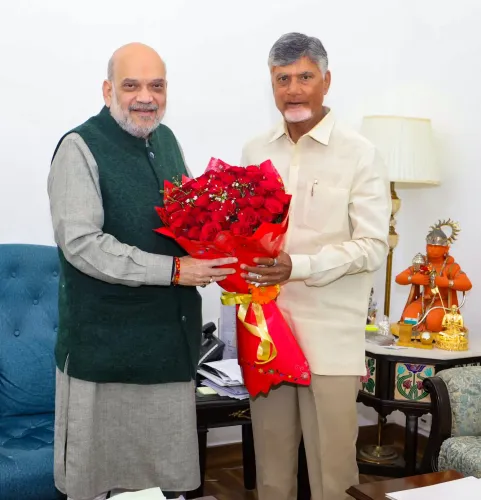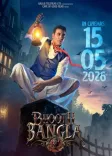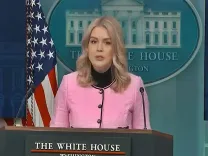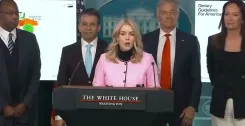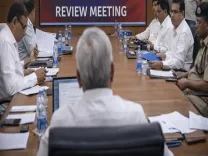How is Traditional Knowledge Essential for Marine Fisheries?

Synopsis
Key Takeaways
- Integration of traditional wisdom with modern technology can significantly enhance fishing practices.
- Eco-friendly coastal protection methods are necessary for preserving fragile ecosystems.
- Addressing plastic pollution is crucial for maintaining marine health.
- Community involvement is essential in policy formulation and marine conservation efforts.
- Innovative monitoring tools can help combat illegal fishing.
Kochi, Sep 11 (IANS) The traditional wisdom of coastal communities plays a crucial role in enhancing the safety and sustainability of India’s marine fisheries, as noted by marine experts during a stakeholder workshop at the ICAR-Central Marine Fisheries Research Institute (CMFRI) on Thursday.
The workshop included panel discussions on “Safety and Sustainability in Fisheries and Aquaculture” and “Impacts and Challenges of the Port and Shipping Sector.”
Experts emphasized that combining age-old fishing knowledge with modern technologies like satellite modeling and remote sensing can provide tailored weather alerts and more precise monsoon predictions, thus benefiting the fishing community and improving maritime safety.
“Fishermen have depended for generations on their profound understanding of the sea—observing wind patterns, ocean currents, and phenomena such as sea swelling—to forecast weather and find fish,” stated Dr. A. Biju Kumar, Vice Chancellor of the Kerala University of Fisheries and Ocean Studies (KUFOS), who launched the workshop.
He also showcased the global acclaim of Kerala’s “Khalasis,” traditional boat builders recognized for crafting the renowned “uru” vessels without blueprints or machinery.
Documenting and merging their techniques with contemporary engineering, he proposed, could lead to groundbreaking innovations in maritime design. The issue of illegal, unreported, and unregulated (IUU) fishing was highlighted as a significant threat to marine resources.
Panelists recommended the adoption of novel monitoring tools to address this challenge and protect fish populations.
With climate change affecting monsoon patterns, elevating sea temperatures, and disrupting ocean upwelling, experts advocated for a community-centric approach.
They underscored eco-friendly coastal protection through bio-fencing and bio-shielding, rather than relying on hard structures that damage delicate ecosystems.
Concerns regarding plastic pollution were also raised. The panelists suggested establishing a “Blue Brigade” of coastal women to lead plastic-free initiatives, acknowledging their pivotal role in households and community awareness.
The discussions highlighted the necessity of engaging stakeholders in policy formulation and execution.
This workshop was collaboratively organized by Ocean Centres India, UN Global Compact Network India, and CMFRI, with contributions from experts including NIFPHATT Director Dr. Shine Kumar C.S., Dr. V.V.R. Suresh, Ratnesh Jha, Dr. Ravi Raj Atrey, Dr. Shoba Joe Kizhakudan, and Dr. Remya L.





